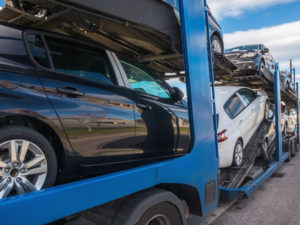The Philippines must avoid too much reliance on China in funding big-ticket infrastructure projects under its “Build, Build, Build” program, a leading economist said.
Veteran economist Bernardo Villegas of the University of Asia and the Pacific (UA&P) welcomed indications that President Duterte —after rebalancing trade and investment relations away from the West—was now doing “a lot of rebalancing away from China.”
At the beginning, Villegas said many people were concerned that Duterte was heading to the extreme by pivoting from the United States to China. He, however, also recognized the President’s moves to bring into the equation other Asian neighbors.
“We’re now beginning to see that Japan, Taiwan and Korea are keeping the Chinese honest in terms of their promises in investment because it is clear from the examples of Sri Lanka and other countries in Africa that the Chinese do not deliver on a lot of their promises,” Villegas said in a recent macroeconomic briefing jointly conducted by First Metro Investments Corp. and UA&P.
While recognizing the opportunities that the renewed diplomacy with China could bring, Villegas said it was good to see the government also working on official development assistance deals with the Japanese, Taiwanese, Koreans and even selected European countries.
With improvements in infrastructure, Villegas agrees that the Philippines is “definitely on the way in the next 10-20 years to (reach) First World status.”
Elsewhere in the world, Villegas noted there were many Chinese-funded projects that were not fulfilled.
“The Chinese are not reliable. Among other reasons, they have their own financial crisis to overcome. Their state enterprises are overborrowed, and they’re now precisely in the process of cleaning up their own financial system. The reason why they appear to be very generous is political. So if and when they make decisions on political reasons to help countries, when they find out that those projects are not economically feasible, they renege,” Villegas said.
As such, Villegas said he would advise taking caution on China-funded projects.
“You can take a look at which companies are being involved in the offer to construct. Take a look at the record of those companies in China. It’s a matter of doing due diligence and seeing what were those companies that did not deliver in Sri Lanka or in Africa,” he said.
Villegas said the Philippines could still make use of ODAs especially in pursuing projects that would not be viable for the private sector to undertake, citing the so-called “missionary” projects including those in Mindanao.
The economist said the Philippines could also do more business with Taiwan “because the Taiwanese leader is trying to get Taiwan as a counterforce to China in Southeast Asia.”


